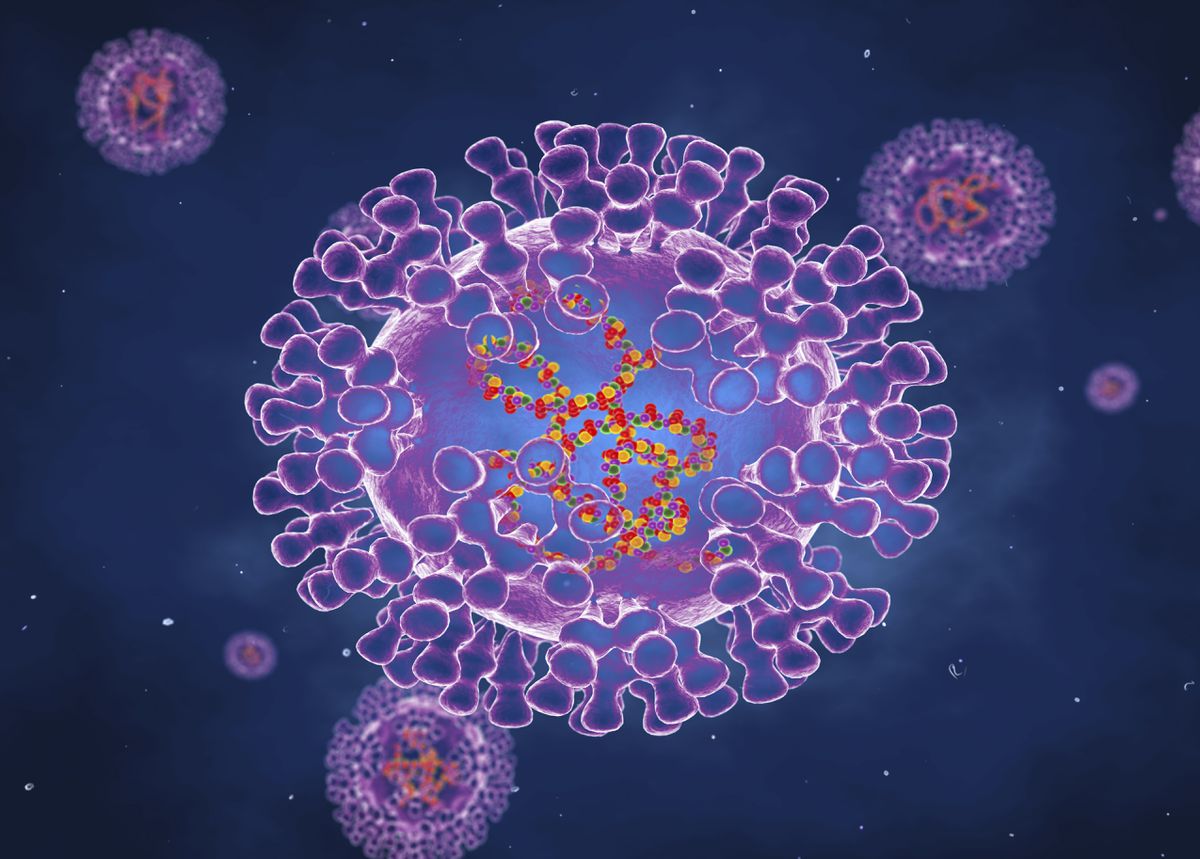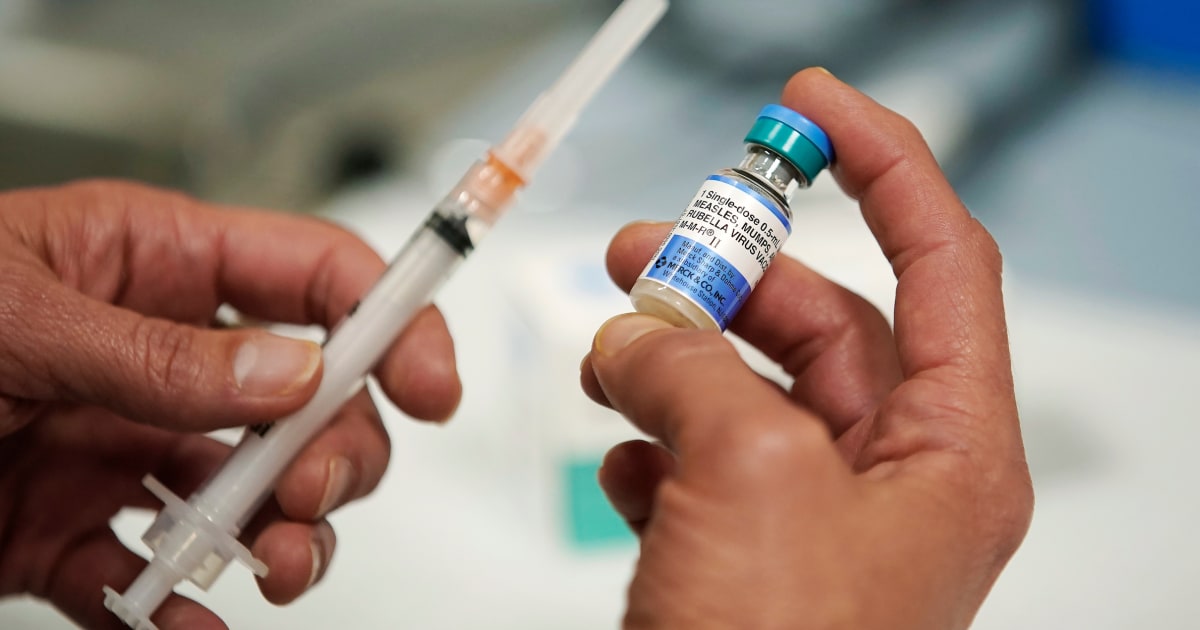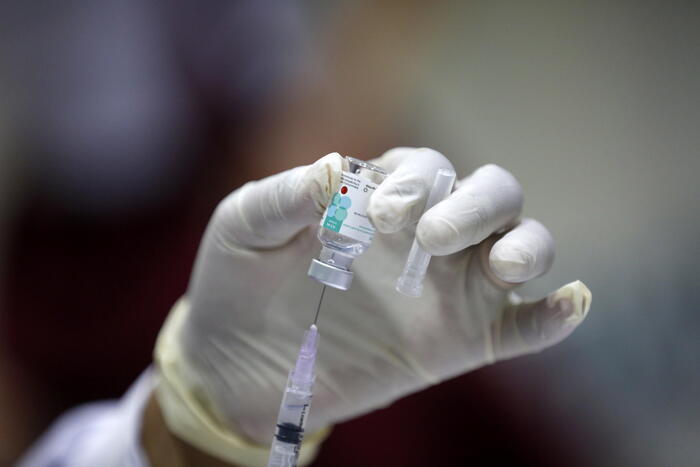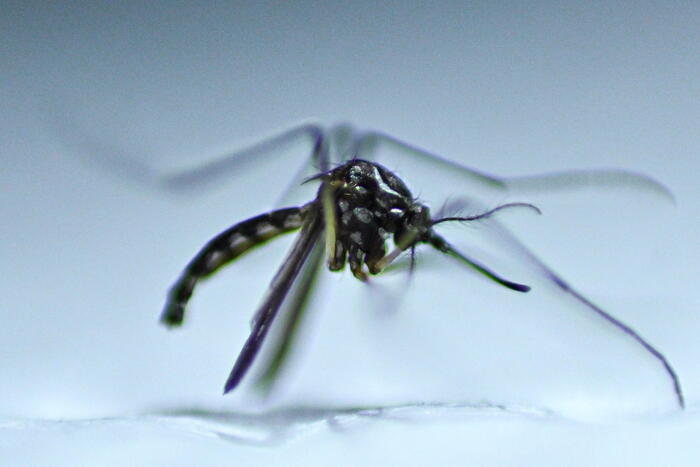The Ministry of Health is finalizing the procedures to start the purchase of thousands of doses of an approved vaccine against traditional smallpox that is also useful for stopping the transmission of the monkeypox virus, against which there is no specific serum in Europe approved, as confirmed to EL PAÍS health sources.
This vaccine is not intended to be administered to the general population, but only to contacts of confirmed cases, in a so-called "ring" strategy that was already used successfully to eradicate smallpox in 1977. This strategy would be the one used to contain the current outbreak, of which for now in Spain there are seven confirmed cases and 24 suspects in the Community of Madrid and another possible in Gran Canaria.
The vaccine goes by the name Imvanex and is manufactured by the Danish laboratory Bavarian Nordik.
The European Medicines Agency (EMA) authorized it in 2013 against traditional smallpox, so "its use in Spain would be off-label, although there is sufficient evidence on its safety and effectiveness because these are two viruses of the same genus”, the orthopoxviruses, explain these sources.
In the United States, the vaccine is marketed under the Jynneos brand and is authorized against both.
In fact, most of the available evidence arose from clinical trials in which the monkeypox virus was taken as a reference, since the traditional one was not available.
“It is a vaccine based on an attenuated type of a virus related to smallpox.
It is very safe and can also be administered to immunocompromised people, in addition to having fewer side effects than traditional smallpox vaccines”, explains Carlos Maluquer, professor of molecular virology at the University of Surrey (United Kingdom).
More information
How is monkeypox spread?
What are your symptoms?
Spain follows the path of the United Kingdom, which is beginning to store thousands of doses and offer them to close contacts of positive cases.
This country has so far confirmed nine infected and is, along with Portugal (five cases) and Spain, one of the three in Europe that have been affected by the current outbreak of the disease, the largest ever recorded on the continent.
The European Center for Disease Control and Prevention (ECDC) has recommended in a statement published this Thursday that "if countries have vaccines against [traditional] smallpox, they should consider vaccination of high-risk contacts."
The same efforts are being made to acquire an antiviral called Tecovirimat, effective against various types of smallpox.
There is a second traditional smallpox vaccine called ACAM2000, manufactured by Sanofi, but this does not have authorization from the EMA (it does from the FDA in the United States).
The general director of Public Health of the Community of Madrid, Elena Andradas, advanced this Wednesday to EL PAÍS that her department had contacted Health to contemplate the purchase of vaccines and antivirals due to the increase in cases in the region.
"You have to find a way to make a quick purchase because it is a very valuable tool to stop the outbreak," she said.
Carlos Maluquer considers that the use of the vaccine can be very useful in the current circumstances.
“Monkeypox virus is very unlikely to cause an epidemic, because it needs fairly close contact between two people to be transmitted, and its outbreaks are usually self-limited.
But we are seeing an unprecedented situation in which the virus is spreading in an unusual way, such as homosexual relations between men.
It seems that it has circulated undetected for several weeks and there are chains of contagion that have not been identified until now.
In this situation, the vaccine can be very useful for rapid control of the outbreak”, he explains.
The Imvanex vaccine prevents contacts of infected people from contracting the virus.
"It protects those who have a close relationship with a confirmed case and, according to studies, it is also useful for those who have already been exposed," says Antoni Trilla, head of the Preventive Medicine service at Hospital Clínic (Barcelona).
Published research shows that the serum is able to prevent the development of the disease if it is administered in the first four days after coming into contact with the virus, while it makes the symptoms milder if it is administered between the fifth and twelfth day. .
Regarding the strategy to contain the outbreak, Trilla explains that it is well known by public health experts.
“It is the one that allowed us to eradicate smallpox.
The first step is to identify a case, isolate it and put it on treatment.
The second, to track and identify her contacts to vaccinate them and monitor that they do not develop symptoms.
And so, in the form of rings around the positive ones, until all the transmission chains are ended”, she illustrates.
Experts recall that the Spanish population born before 1980 already has some immunity against monkeypox because they were vaccinated at the time in the campaigns to end traditional smallpox.
The immunity obtained then lasts for many years.
The youngest, however, do not enjoy this protection because when the disease was eradicated, the vaccine was no longer administered, which now makes them more vulnerable.
Despite this, monkeypox almost always has a good evolution in healthy people, although the symptoms can be very bothersome for two or three weeks and, like all ailments, it is not without the risk of complications.
According to information provided by the Community of Madrid, the first 23 suspected cases are between 25 and 63 years old, with an average age of around 35.
Carlos Maluquer maintains that the delay in detecting that the monkeypox virus was circulating is due to the fact that practically no doctor has seen the disease: “They did not expect to find this virus, especially those who work in sexual health clinics, who it is where most of the affected patients must have gone.
It must have been circulating for three or four weeks and the doctors thought when they saw the rashes on the skin that it was something else, like herpes.
This has delayed the first diagnosis and explains why, after the alert, quite a few cases are now being discovered at once.
The foreseeable thing is that these continue to grow for a few days, but then the outbreak will be stopped.







/cloudfront-eu-central-1.images.arcpublishing.com/prisa/LXJQLIHEEJDHBNVN45ZLQLAMJY.jpg)

